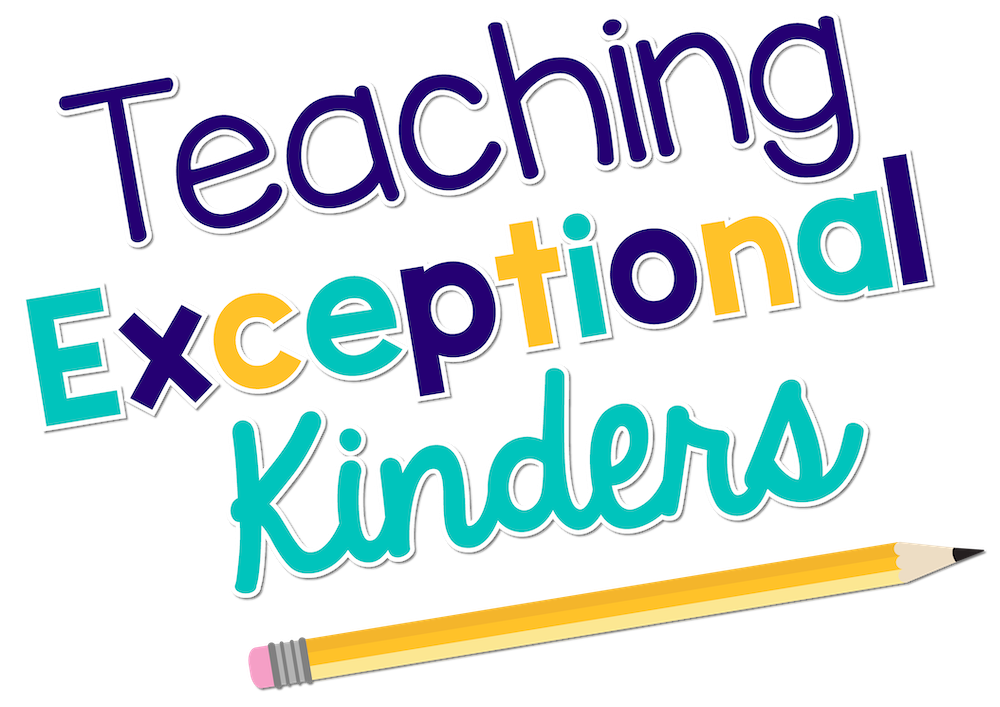5 Reasons to Use Self-Evaluation Forms for Parent-Teacher Conferences
When parent-teacher conference time rolls around, it’s time to start thinking about what you’ll share with your students’ families. One thing that I always like to include during conferences is a self-evaluation from each student. (Yes, five and six-year-olds can evaluate their own behavior and work habits!) In this post, I’m going to share more about how to use self-evaluation forms for parent-teacher conferences in kindergarten.
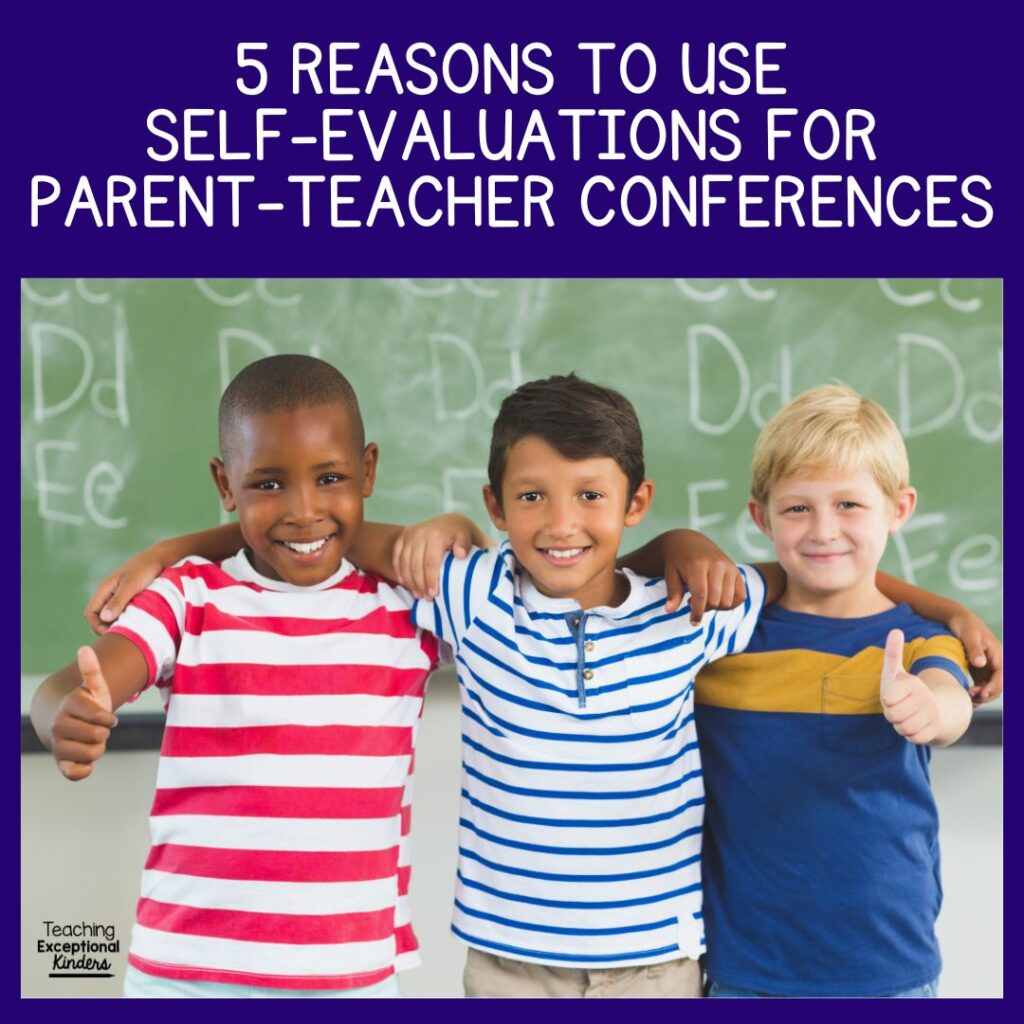
5 Reasons to Use Self-Evaluation Forms for Parent-Teacher Conferences
With so many things to discuss during parent-teacher conferences, you might feel like there just isn’t enough time to add another form to go over with families. However, self-evaluation is a small way to make a big impact on your conferences. Keep reading for five reasons why it’s worth the time to add a self-assessment to your conference planning.
1. Increase Accountability
Getting students to take ownership of their learning is one of our biggest goals as teachers. We want students to feel accountable for their education, and a self-evaluation is a helpful tool in developing responsible learners.
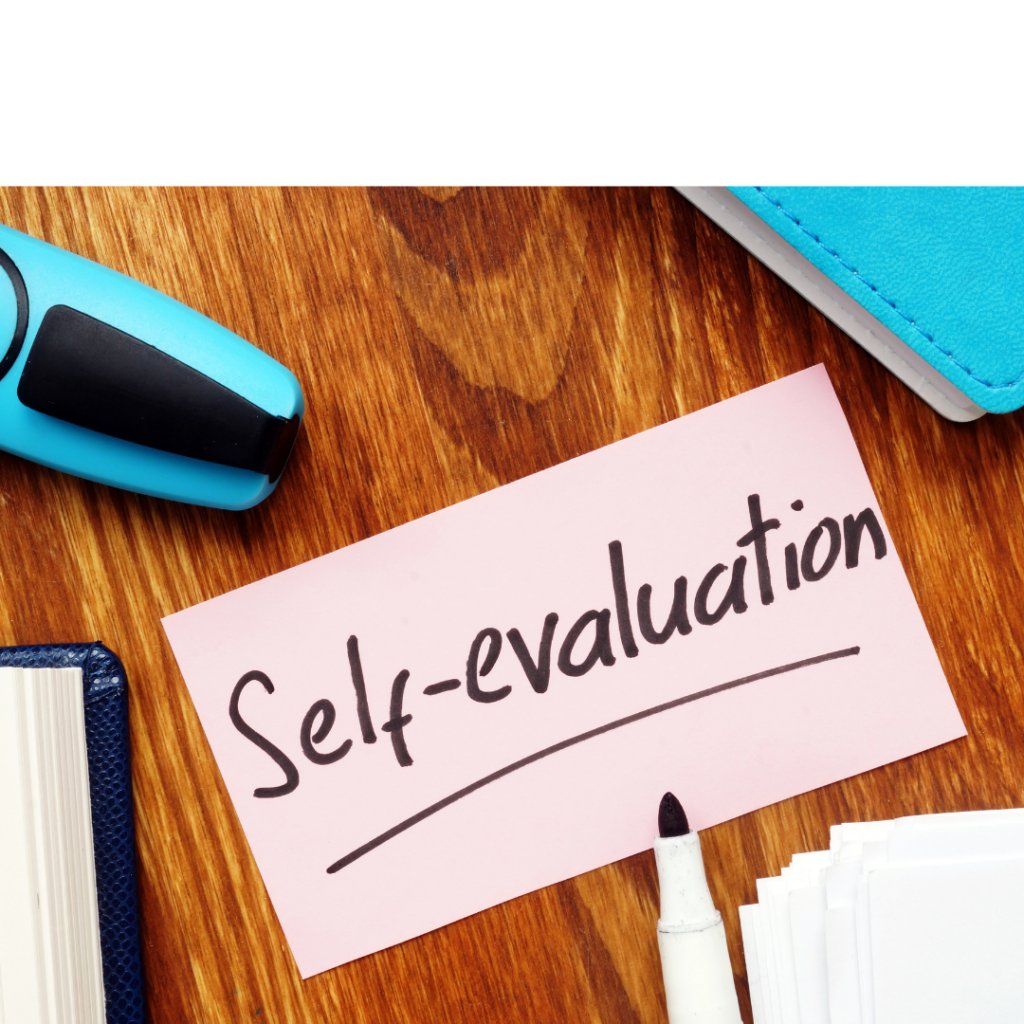
The form that I like to use has multiple statements about work habits and behavior. Students are given three choices to evaluate themselves based on these statements:
1. Thumbs Up – “I do this almost all of the time.”
2. Thumbs to the Side – “I do this some of the time.”
3. Thumbs Down – “I need to work on this.”
Simplicity is best in kindergarten, which is why I like this straightforward way for students to evaluate themselves. As they complete the form, they can think about their own actions in the classroom and decide how to respond to each part of the questionnaire. This will set the foundation for students to hold themselves accountable for their performance as they continue through years of school.

2. Assess Feelings Toward School
No matter what questions you decide to include on a self-evaluation form, be sure to include a question that asks about how students feel about school. Your students will have varied feelings about their own effort, behavior, and progress, but the hope is that school is still somewhere they want to be. A self-assessment is a great way to check in with your students about how they are feeling about school!
Parents will also be able to provide more insight into this discussion during conferences. You can ask them if their child seems happy and excited to come to school or if it’s a struggle to get them out the door each day. Our students have many years of school ahead of them, so it’s important that school is a place they want to be!
3. Document Progress Throughout the Year
By adding a self-evaluation to each report card period, you’re creating multiple opportunities to document student progress. This can be as simple as the handwriting sample at the top of the form, where students can show off their developing name writing skills! However, it’s also helpful to see how each student grows and changes through their self-evaluation.
4. Break the Ice with Parents
Once the self-evaluation forms are completed, be sure to tuck them into the conference folder. In fact, I suggest putting them near the top of the pile! This way you can use the self-assessment to set the tone for the conference. Rather than starting with a presentation of test scores and work samples, you can start with the big picture: How their child feels that things are going at school.

5. Open Constructive Conversations
As we all know, parent-teacher conferences are a time when we need to have challenging conversations with parents. We might need to offer constructive feedback about a student’s behavior or work habits. A self-evaluation form can open the door to some of those more difficult conversations with parents. For example, if a student gives herself a thumbs down for working quietly, you could then tell the parents that you have also noticed that in class.
These types of constructive conversations go much easier when parents can see their own child’s opinions about their behavior and work habits.
How to Prepare Self-Evaluation Forms for Parent-Teacher Conferences
Preparing self-evaluation forms in kindergarten is definitely more than just handing your students a form to fill out! If students fill out the forms independently, you might notice that students color only one thumb all the way down, they might create a pattern with their responses, or they might even just color in all three choices on each line! Here are a few tips to help you complete self-evaluation forms with your students:
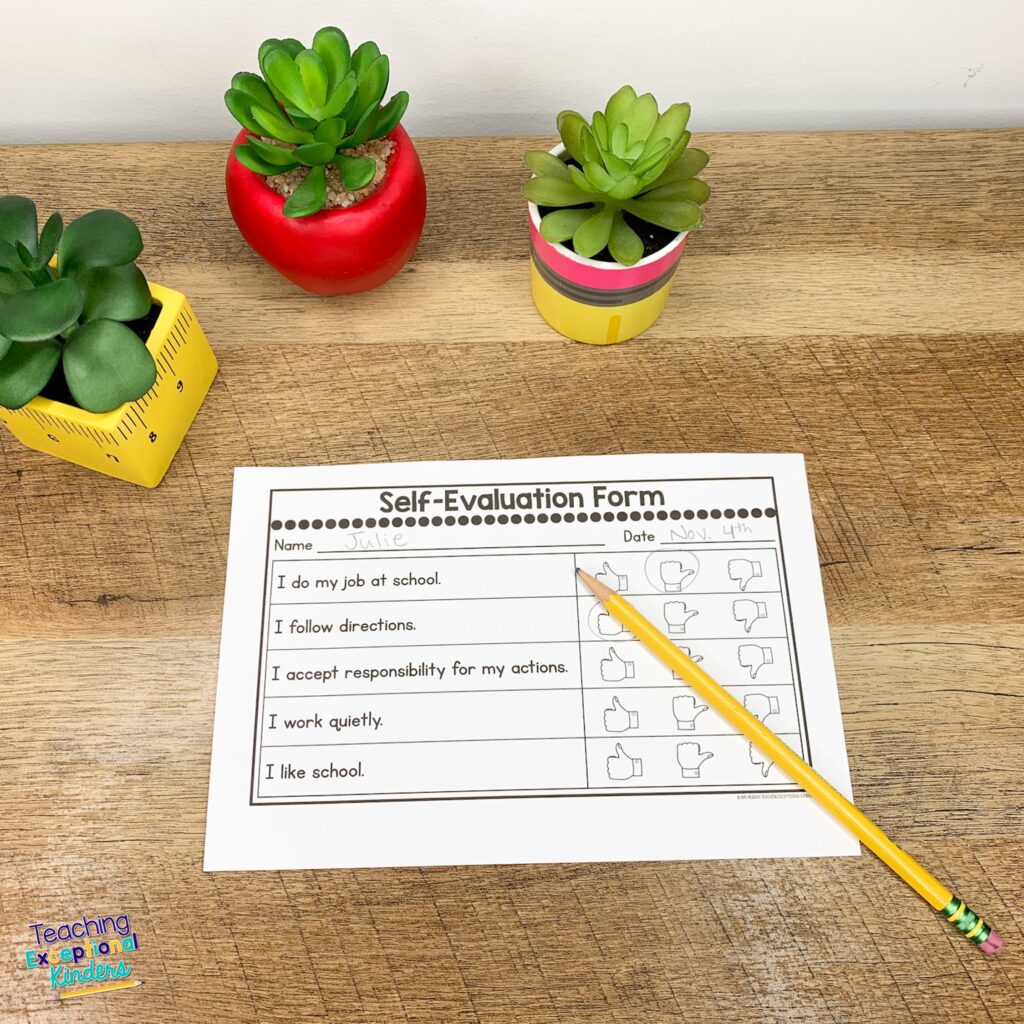
Complete It Together: This could be as a whole class, in small groups, or one-on-one. This way, you can make sure students understand each item on the questionnaire before they respond.
Explain the Purpose of Self-Evaluations: When students don’t fully understand the purpose of self-assessment, they might feel like they have to give themselves a thumbs up for everything! Explain to your students that self-evaluations are supposed to give an honest picture of how they feel they are doing at school. Emphasize to students that everyone’s papers will look different because everyone is different!
Ensure Privacy: It’s important for students to know that the only people who will see their self-evaluations are you and their parents/guardians. This will encourage them to be open and honest in their responses. If you’re completing these together as a whole class, you might even want to bring out privacy folders.
Check out this video for more tips to prepare self-evaluation forms in kindergarten.
Editable Self-Evaluation Forms for Kindergarten
If you would like to create a customized self-evaluation form for your students, you should check out this bundle of resources for parent-teacher conferences. This resource contains everything you need for a smooth conference experience, including editable self-evaluation forms. You can find these forms in the Teaching Exceptional Kinders shop or on Teachers Pay Teachers.
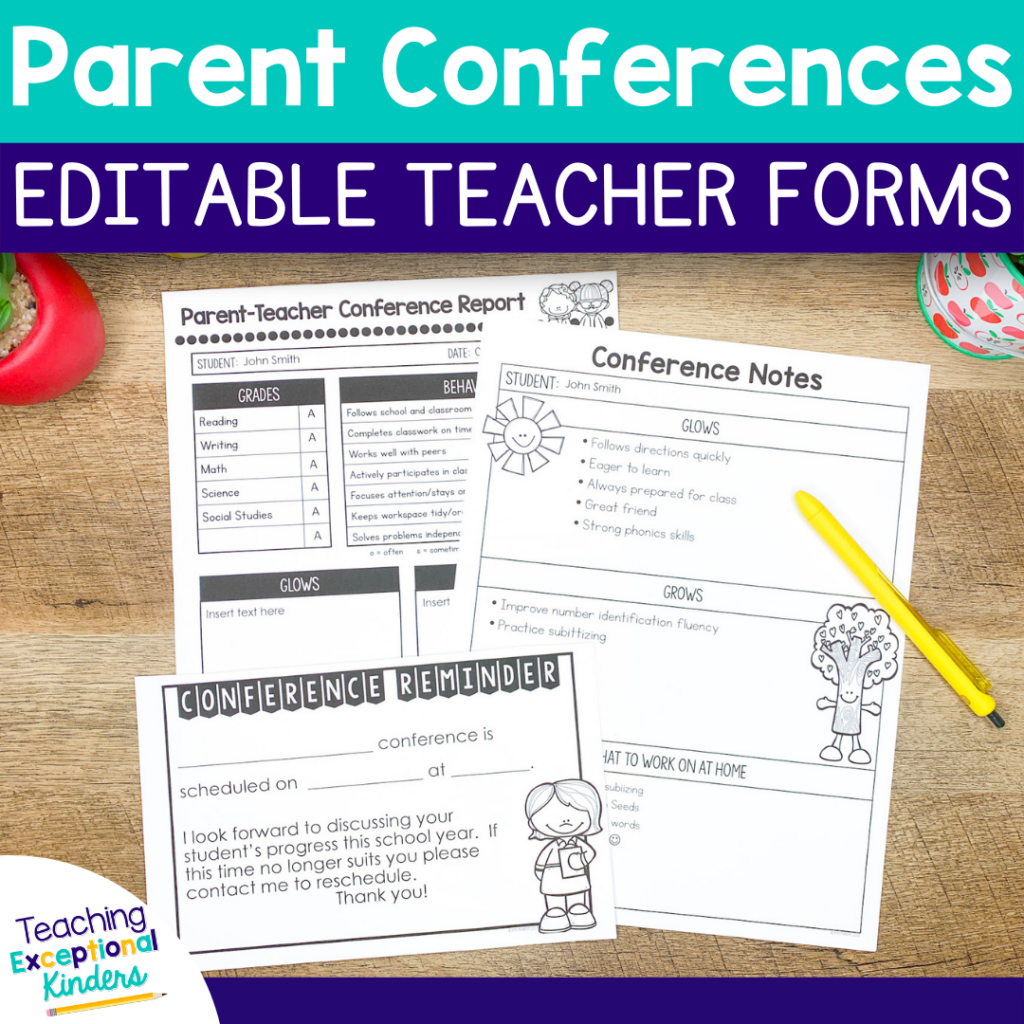
Save These Self-Evaluation Forms for Parent-Teacher Conferences
Would you like to come back to this post later? Be sure to add this pin to your favorite teaching board on Pinterest. You’ll be able to quickly find these ideas and resources whenever you need them!
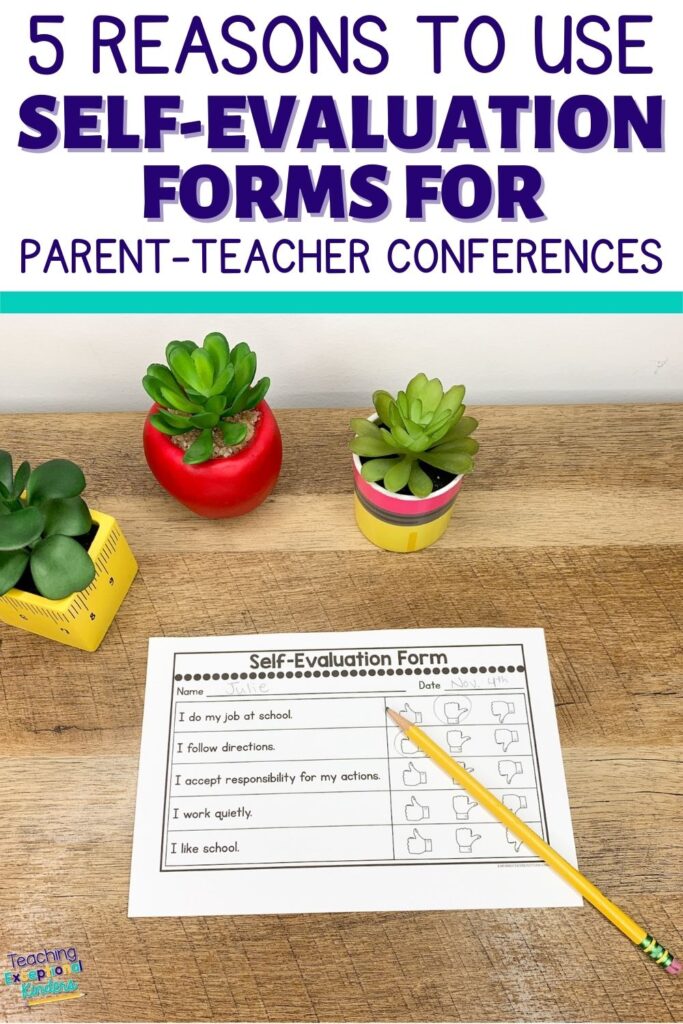
Amy
SITE DESIGN BY LAINE SUTHERLAND DESIGNS

